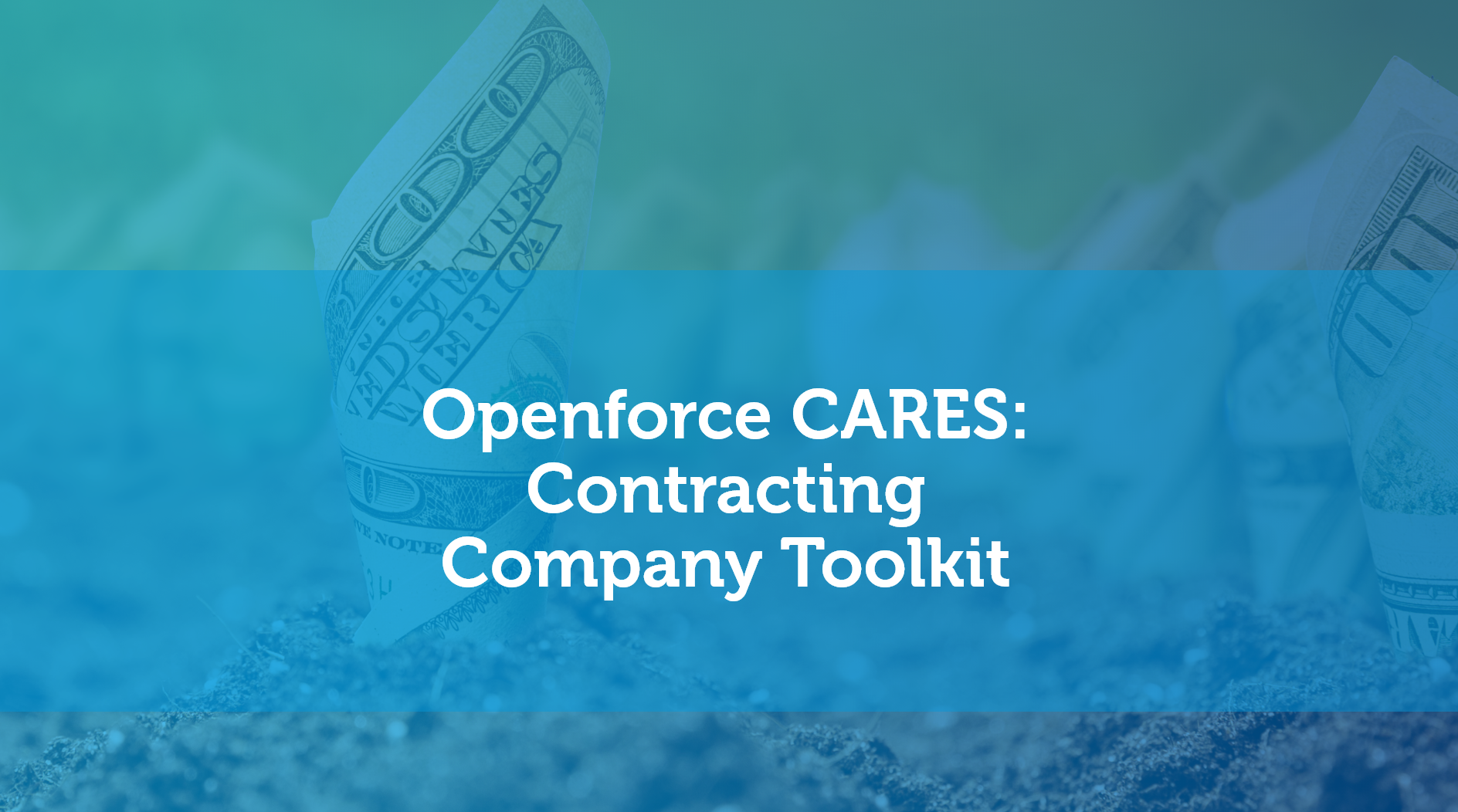Openforce CARES:
Contracting Company Toolkit
Your guide to navigating financial relief during COVID-19
The coronavirus pandemic is hitting the U.S. economy hard. Your business may be faced with uncertainty and fluctuating demand. And the independent contractors (ICs) you work with may likewise be struggling with uncertainty and looking for help.
You may already be looking closely at the variety of relief programs available for businesses under the new emergency legislation. But, for the first time ever, ICs and other self-employed individuals—as small business owners in their own right—have access to significant benefits programs and financial assistance, some of which are unavailable to traditional employees.
While there are numerous general guides covering the details of the benefits available to businesses, there are also some gray areas, particularly in relation to those programs available to both businesses and the ICs they contract with.
We’ve designed this resource to help you navigate IC-related questions under the new COVID-19 legislation and to address concepts specific to companies utilizing ICs as a primary element of their workforces. This is meant to highlight the issues you may want to consider. However, we recommend that any final decisions on how to utilize the relief programs be made in consultation with counsel.
At this point, you are likely inundated with questions from ICs, so we have also created the Openforce CARES: IC Toolkit, which you can refer them to as they sort through their relief options.
What these laws do
The massive Coronavirus Aid, Relief and Economic Security (CARES) Act provides over $2 trillion in relief to American families and businesses. Under this act, businesses (including ICs) may qualify for a wide variety of relief options, such as loans (that may be forgiven in whole or in part), deferred taxes and more. In a notable departure from previous legislations, ICs also gain access to unemployment benefits. At the same time, the Families First Coronavirus Response Act (FFCRA) enables independent workers to access emergency paid leave in the form of tax credits.
Keep reading for a breakdown of these benefits and how they might affect your business.
Benefits guide
We want to help, so keep checking back
As difficult as things are right now, the current crisis has made the vital role you play in the economy more visible. That means more relief for your business and independent contractors alike, but this relief does raise questions worth discussing with your legal counsel.
Over the next few weeks, we will continue to update this page as the government releases new guidelines about each of these programs, so keep checking back. We’re committed to making sure you have the information you need.
Legal Disclaimer
Openforce provides general information and industry guidance related to solutions and services for independent contractor workforces. Openforce does not provide legal advice and is not a law firm. While we may have former lawyers and other legal specialists on staff, none of our representatives are licensed lawyers and no one at Openforce provides legal services. Although we go to great lengths to make sure our information is accurate and useful, we always recommend you consult a lawyer for legal advice or a business/tax advisor for applicable business assistance.
About Openforce
Openforce is the leader in technology-driven services that reduce operating costs and mitigate risk for companies using independent contractors. Our cloud-based applications help companies and contractors alike achieve more sustainable, profitable growth by removing financial, operational, and compliance barriers to getting business done.

